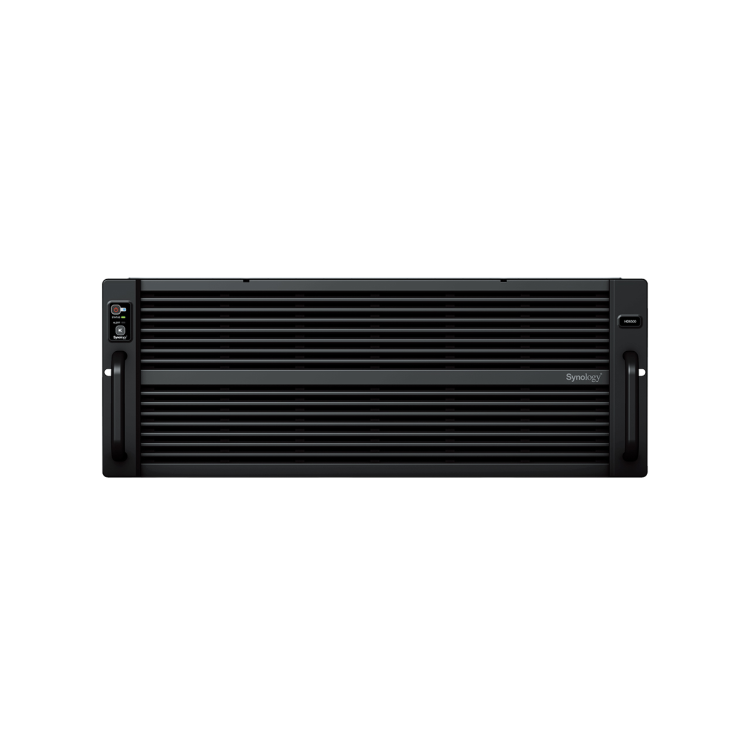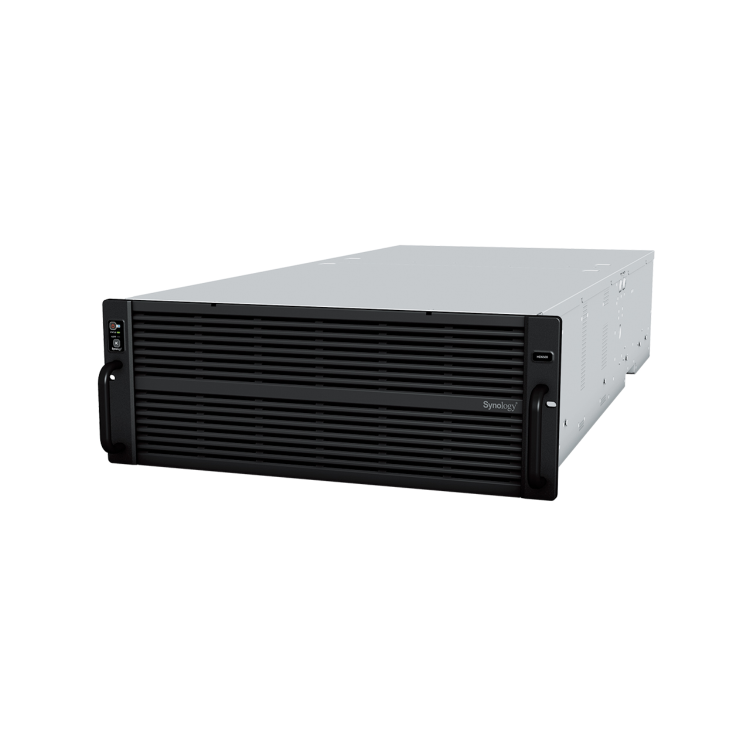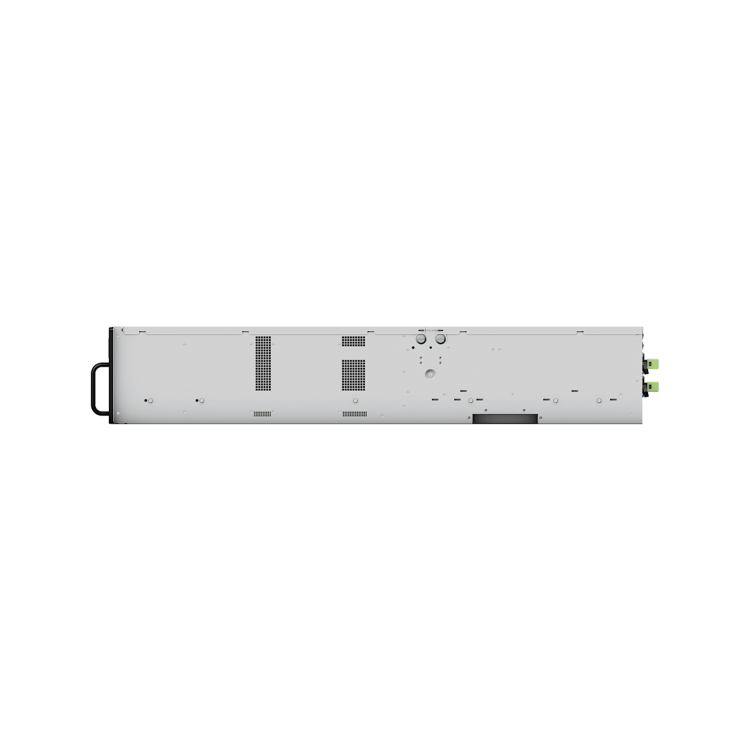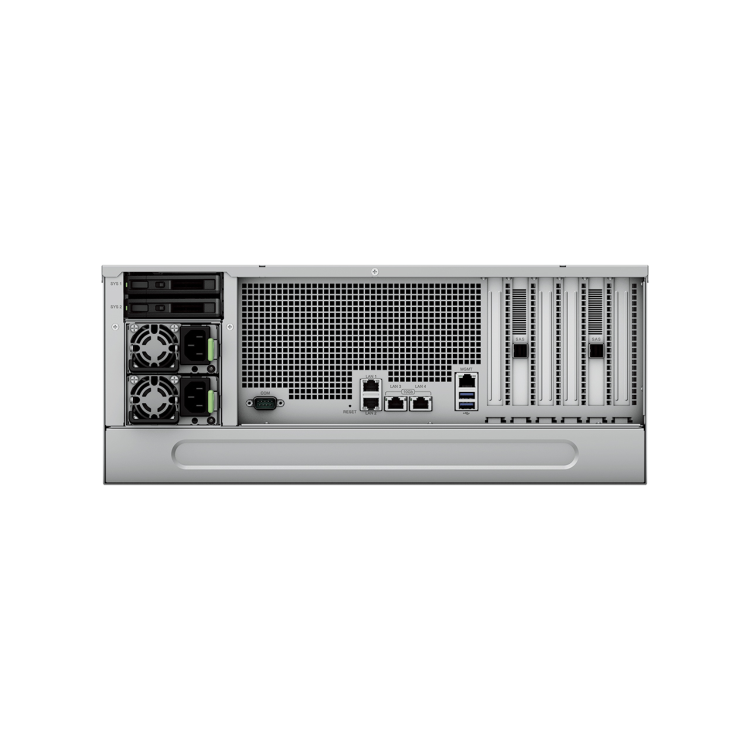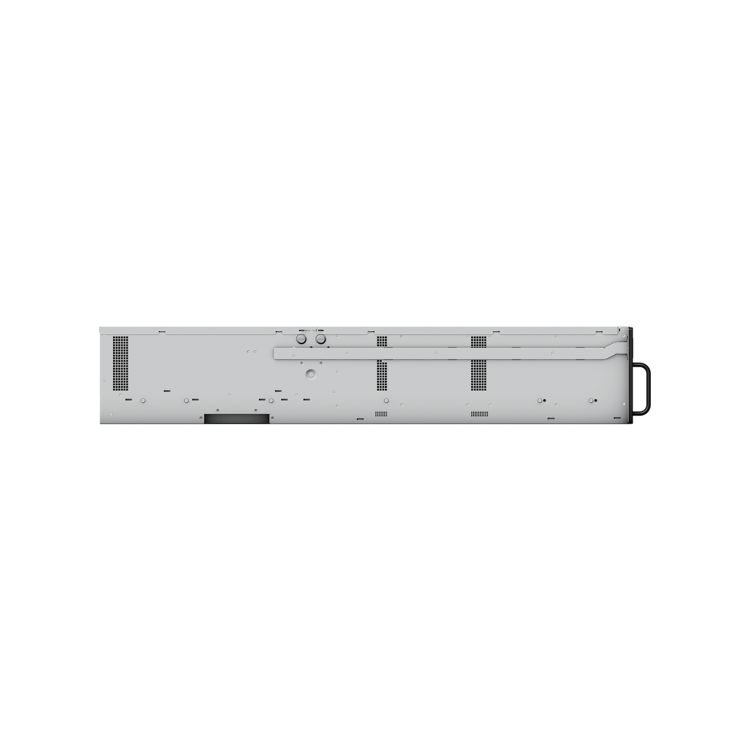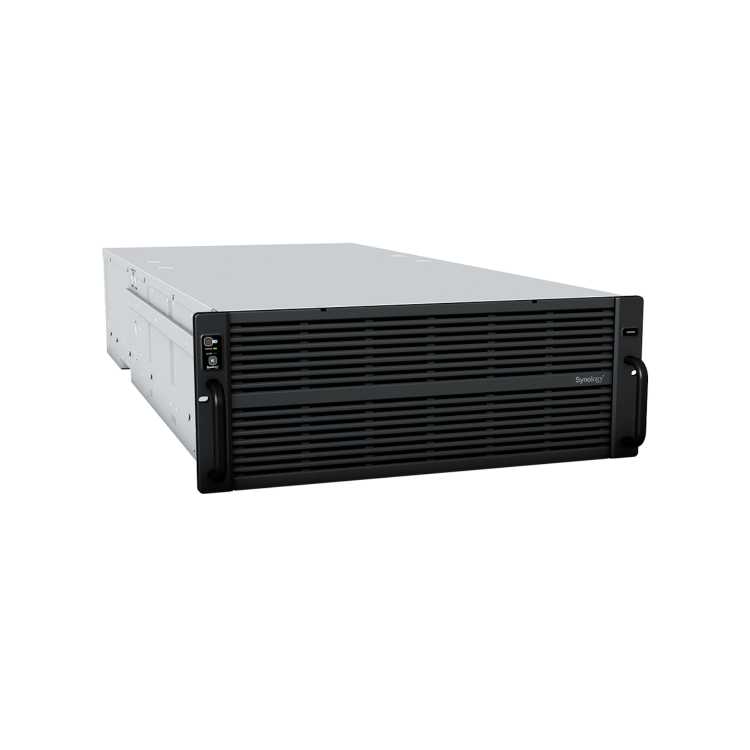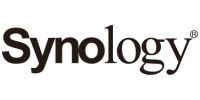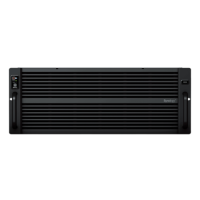Unparalleled Storage Capacity in a 4U Form Factor
The Synology HD6500 is designed for enterprises demanding exceptional storage scalability and density. Housed in a compact 4U chassis, it offers an impressive 60-bay configuration, providing massive raw capacity ideal for backup, archiving, and video surveillance applications. Its modular design ensures easy access and maintenance, making it a practical solution for data centers or businesses scaling rapidly.
Dual Intel® Xeon® Performance for Demanding Workloads
Powering the HD6500 is a dual Intel® Xeon® CPU setup, delivering enterprise-grade compute performance that can handle large-scale data processing, virtualization, and real-time analytics. This dual-processor architecture enhances parallel processing capabilities, ensuring high throughput and reduced latency, even under heavy load conditions.
Seamless Integration with Synology DSM
Running on Synology’s intuitive DiskStation Manager (DSM), the HD6500 offers a user-friendly yet powerful management interface. DSM brings advanced features such as centralized backup, file sharing, virtualization storage, and robust data protection tools. The HD6500 integrates seamlessly with existing Synology ecosystems, ensuring a consistent experience across all devices.
High Availability and Redundancy
The HD6500 is built with enterprise reliability in mind. It supports redundant power supplies and system fans to minimize downtime in case of hardware failure. Coupled with Synology High Availability (SHA), it can be configured to automatically switch over to a secondary system, guaranteeing business continuity and maximum uptime.
Scalable to Meet Growing Data Needs
With support for up to 300 drives through additional expansion units (sold separately), the HD6500 offers flexibility for growing businesses. Whether you're handling massive video archives, big data analytics, or cloud storage, this system evolves with your needs—no disruptive migrations required.
Optimized for Enterprise Security and Compliance
The HD6500 features advanced encryption, role-based access controls, and secure protocols to safeguard sensitive data. It also supports auditing tools and compliance standards required by regulated industries, making it a trusted choice for government, finance, and healthcare sectors.












